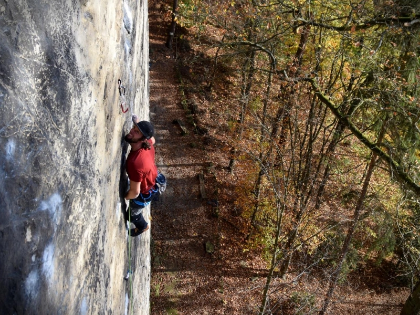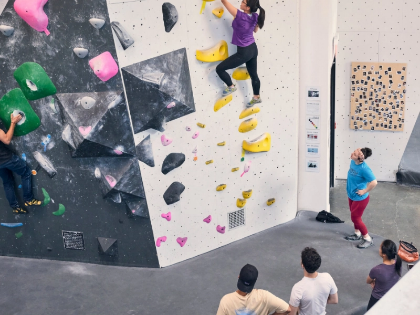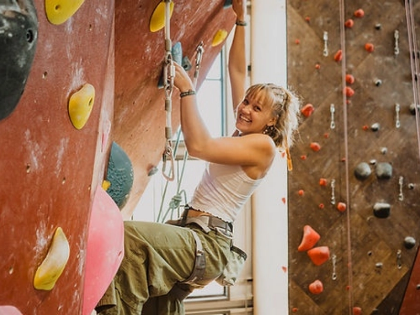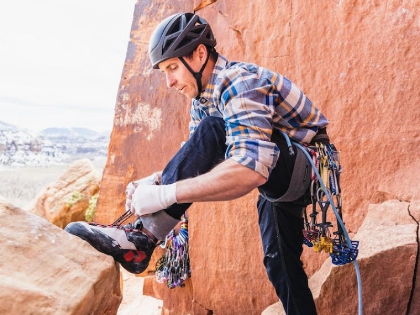Is Climbing Better Than Gym?
Climbing is an excellent physical and mental challenge. It also teaches you to trust your surroundings and boosts your confidence. Although climbing helps develop muscle, it shouldn't be used in place of a regular weight room training programme. Additionally, it trains different muscles than other sports or activities.
Power
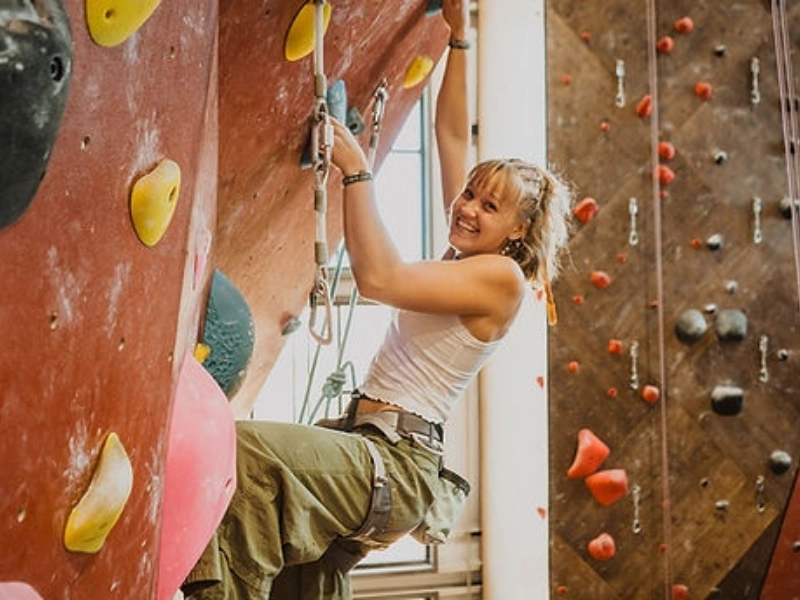
Adaptability
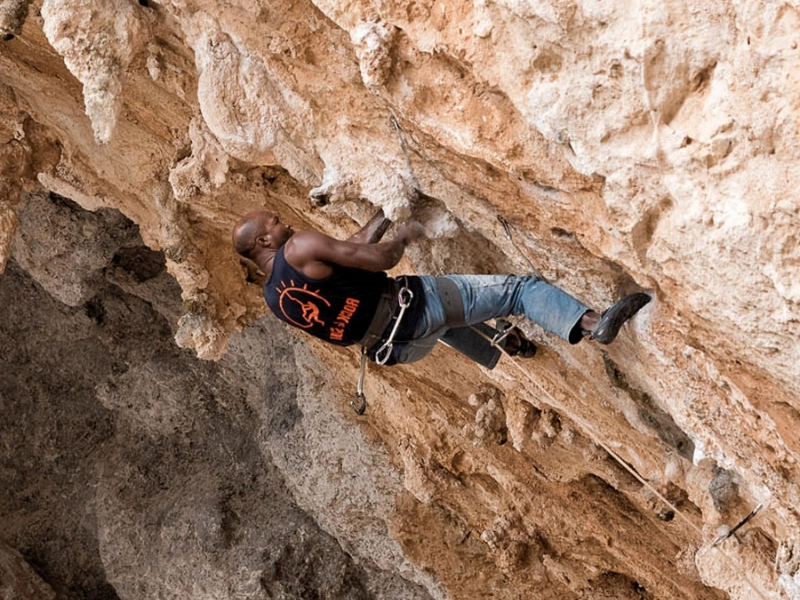 Climbing is a fantastic upper-body and core workout in addition to being an excellent cardiovascular exercise. But because climbing is such a difficult activity, having a skilled climbing coach is crucial to helping you stay injury-free.
If you try to go through the difficulty levels too quickly, you run the risk of injuring your tendons in your fingers and arms because they take a long time to adjust to the strain of climbing. A climbing coach can make sure you're moving towards your objective at a steady, moderate pace.
Even though climbing is an excellent total workout, it isn't as good at growing muscle as weightlifting. The majority of your muscles are not being used to their full potential, and the ones that are are frequently antagonistic to each other when it comes to weight training (e.g., push-ups and overhead presses).
Climbing is a fantastic upper-body and core workout in addition to being an excellent cardiovascular exercise. But because climbing is such a difficult activity, having a skilled climbing coach is crucial to helping you stay injury-free.
If you try to go through the difficulty levels too quickly, you run the risk of injuring your tendons in your fingers and arms because they take a long time to adjust to the strain of climbing. A climbing coach can make sure you're moving towards your objective at a steady, moderate pace.
Even though climbing is an excellent total workout, it isn't as good at growing muscle as weightlifting. The majority of your muscles are not being used to their full potential, and the ones that are are frequently antagonistic to each other when it comes to weight training (e.g., push-ups and overhead presses).
Sync
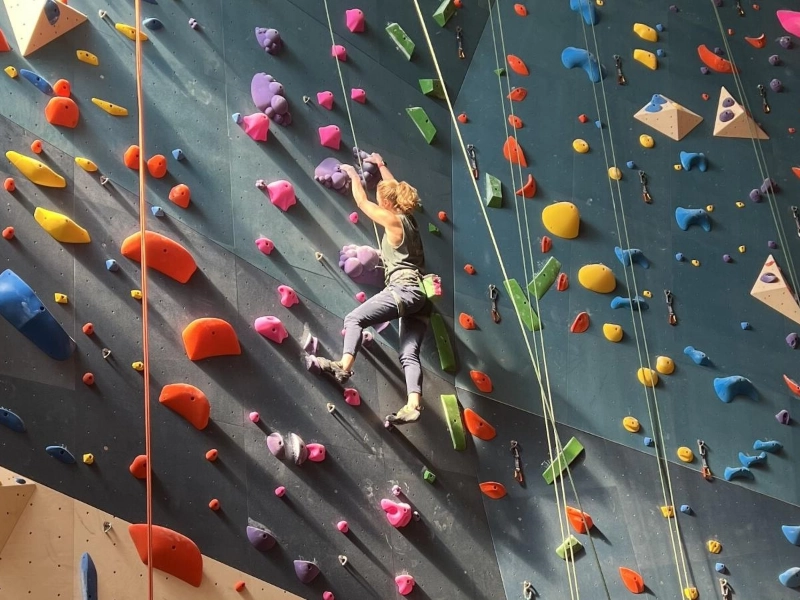 To mount a wall when climbing, one needs more than simply physical power. To locate your next hand or foothold, you have to use problem-solving skills and a mind-body connection. According to an assessment of the sport by the American Council on Exercise, it also necessitates pausing and holding your posture, which triggers isometric muscular contractions.
In addition, compared to weight training, rock climbing activates other muscle groups, such as shorter, slower-firing muscle cells that help define and burn fat. It's also a fantastic aerobic exercise that works every muscle in your body, even the ones at your fingertips, and can burn more calories than jogging. Climbing is, therefore, a fantastic complement to any exercise programme. And it's even better with friends, just like a nice supper. Groups of climbers collaborate, solve problems, and compete against one another in a friendly setting at indoor climbing gyms.
To mount a wall when climbing, one needs more than simply physical power. To locate your next hand or foothold, you have to use problem-solving skills and a mind-body connection. According to an assessment of the sport by the American Council on Exercise, it also necessitates pausing and holding your posture, which triggers isometric muscular contractions.
In addition, compared to weight training, rock climbing activates other muscle groups, such as shorter, slower-firing muscle cells that help define and burn fat. It's also a fantastic aerobic exercise that works every muscle in your body, even the ones at your fingertips, and can burn more calories than jogging. Climbing is, therefore, a fantastic complement to any exercise programme. And it's even better with friends, just like a nice supper. Groups of climbers collaborate, solve problems, and compete against one another in a friendly setting at indoor climbing gyms.
Harmony
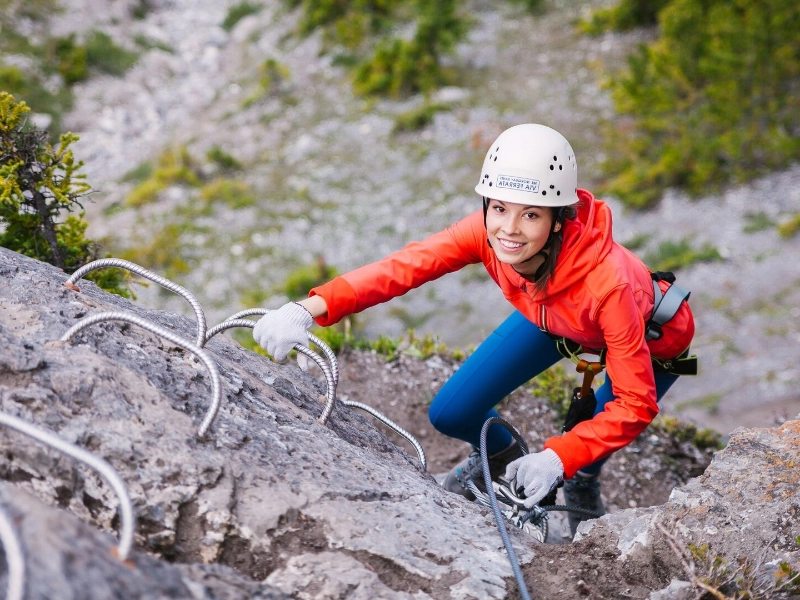 Engaging the mind and body, climbing is an enjoyable and demanding sport. It offers a range of difficulties that compel the climber to find solutions to issues like what to do next. Additionally, it teaches the body and brain to cooperate in a comforting, stress-free setting.
Because climbers generally pull with their arms and push with their legs at the same time, it also strengthens the muscles in the lower body and core. This keeps the arms from wearing out too soon and helps them stay parallel to the wall.
The climbing holds become smaller and spaced farther apart as you gain experience. Because of this, the tendons in the hands and arms have to work harder to grip the tiny grips. If you attempt to progress too rapidly, this could result in a tendon injury. For this reason, Bridgeman suggests delaying higher-difficulty climbs until after you have at least six months of experience in the same grading.
Engaging the mind and body, climbing is an enjoyable and demanding sport. It offers a range of difficulties that compel the climber to find solutions to issues like what to do next. Additionally, it teaches the body and brain to cooperate in a comforting, stress-free setting.
Because climbers generally pull with their arms and push with their legs at the same time, it also strengthens the muscles in the lower body and core. This keeps the arms from wearing out too soon and helps them stay parallel to the wall.
The climbing holds become smaller and spaced farther apart as you gain experience. Because of this, the tendons in the hands and arms have to work harder to grip the tiny grips. If you attempt to progress too rapidly, this could result in a tendon injury. For this reason, Bridgeman suggests delaying higher-difficulty climbs until after you have at least six months of experience in the same grading.
Mental Capacity
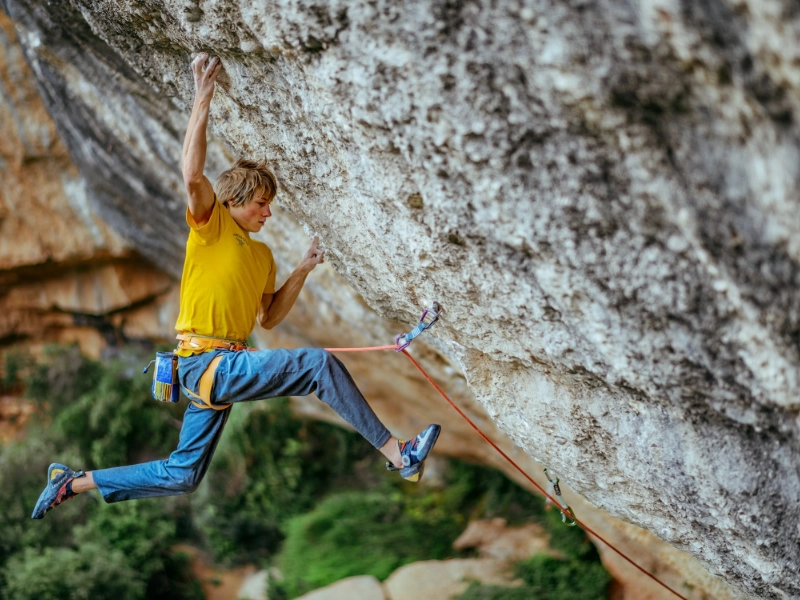 Climbing is a fantastic physical and mental exercise that tones your entire body. Because climbing demands intense concentration, it enhances decision-making abilities and lowers anxiety. In addition, climbing frequently involves a close-knit group of people who will support you as you face your concerns and take on new tasks.
Climbing works all of your major muscle groups isometrically, unlike weight training, which develops huge muscles in your arms, legs, and back. More natural, healthy muscle mass is the outcome.
Climbing not only helps you gain strength but also improves your aerobic fitness by teaching you how to manage your lactate levels. This enables you to persevere longer and perform better on challenging courses. It takes a lot of perseverance to physically and psychologically get stronger and improve your technique, but the benefits are definitely worth it!
Climbing is a fantastic physical and mental exercise that tones your entire body. Because climbing demands intense concentration, it enhances decision-making abilities and lowers anxiety. In addition, climbing frequently involves a close-knit group of people who will support you as you face your concerns and take on new tasks.
Climbing works all of your major muscle groups isometrically, unlike weight training, which develops huge muscles in your arms, legs, and back. More natural, healthy muscle mass is the outcome.
Climbing not only helps you gain strength but also improves your aerobic fitness by teaching you how to manage your lactate levels. This enables you to persevere longer and perform better on challenging courses. It takes a lot of perseverance to physically and psychologically get stronger and improve your technique, but the benefits are definitely worth it!


